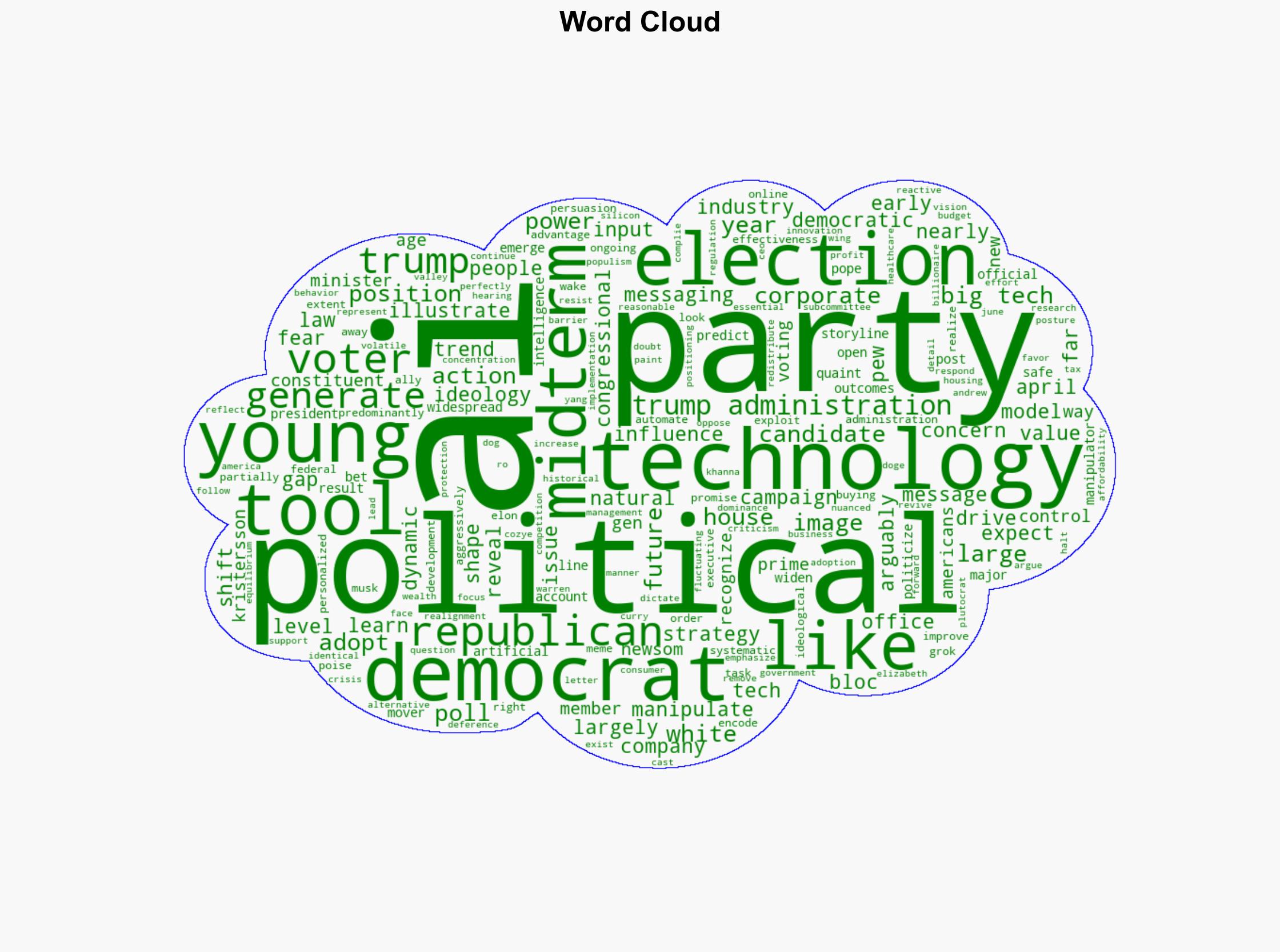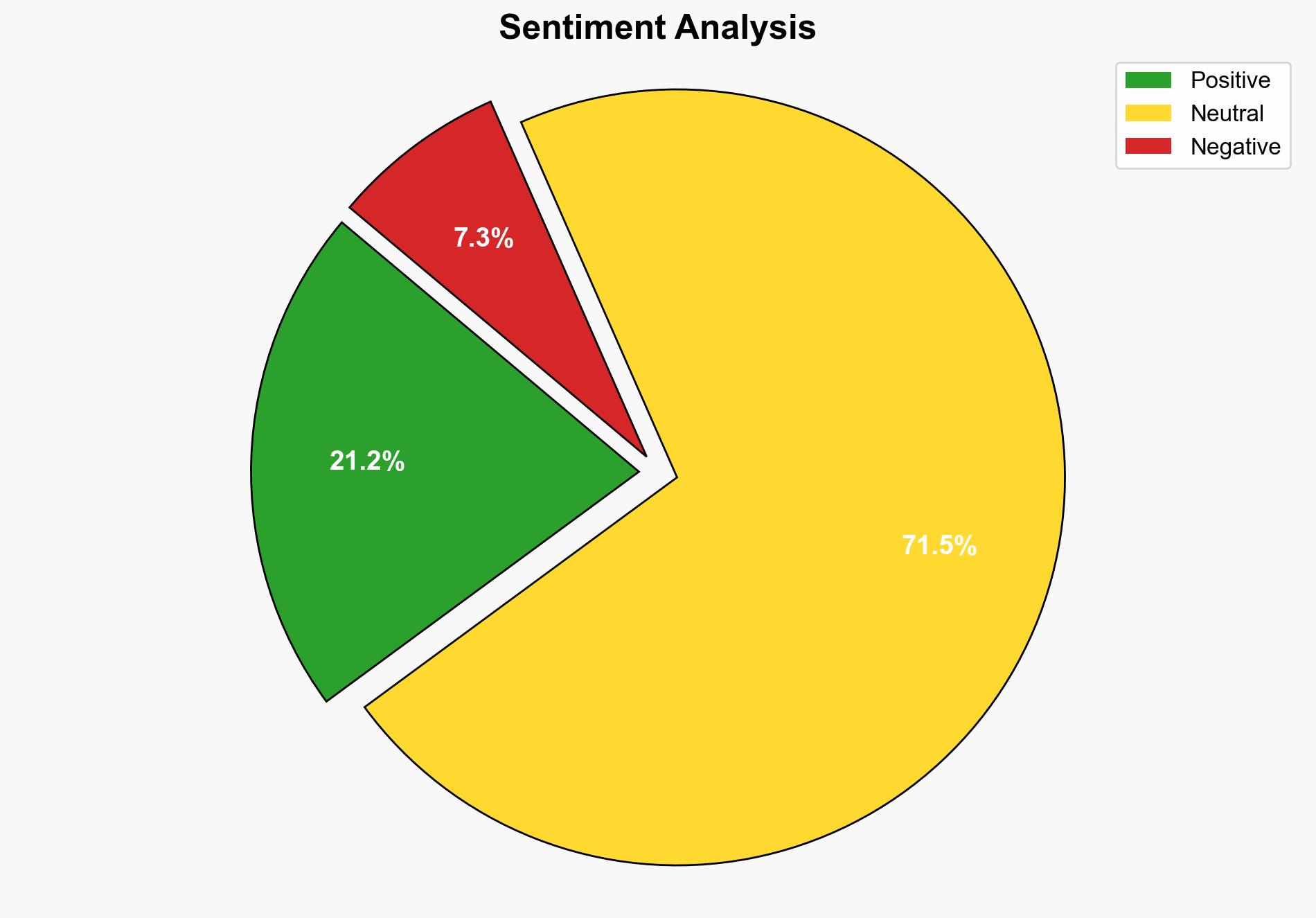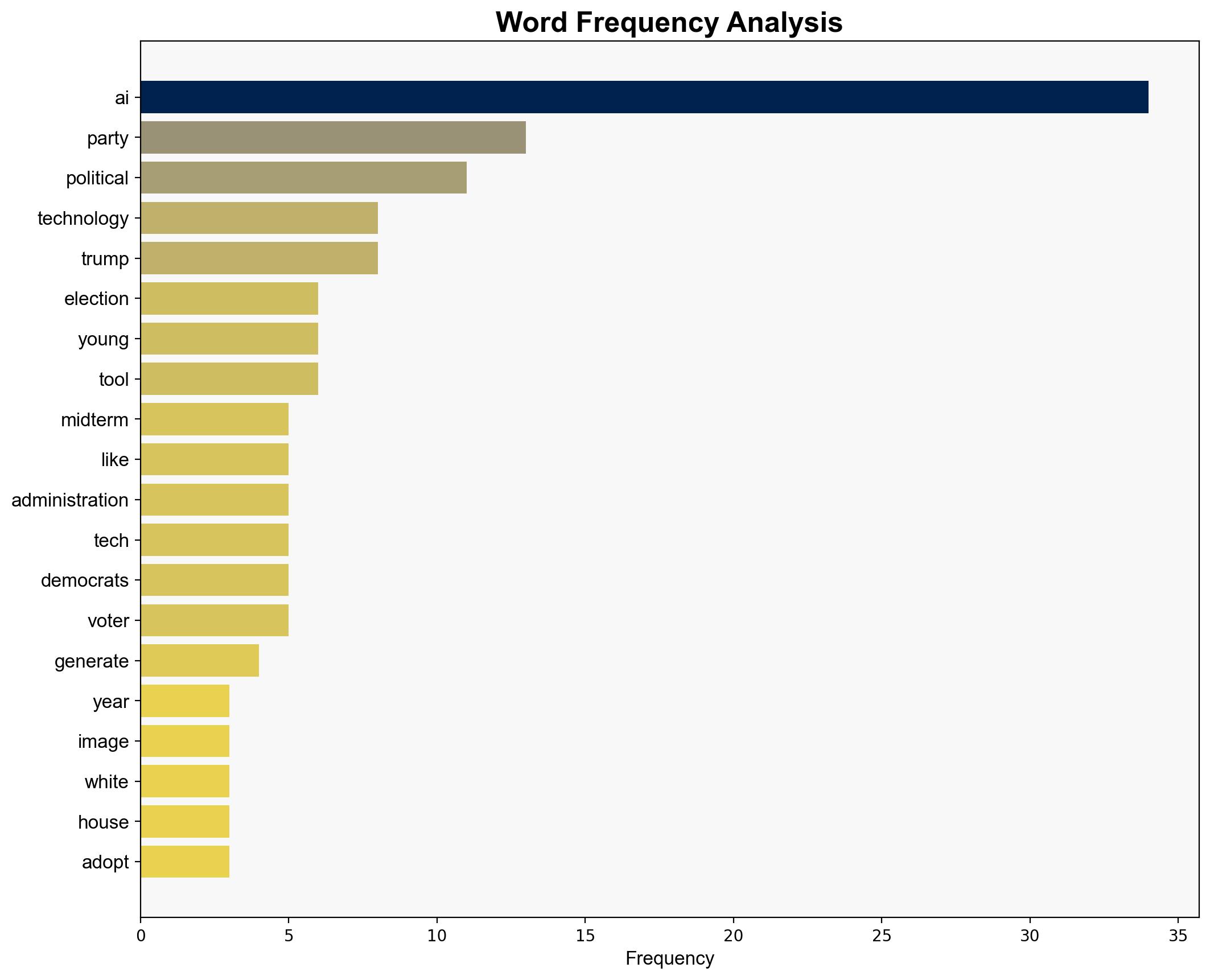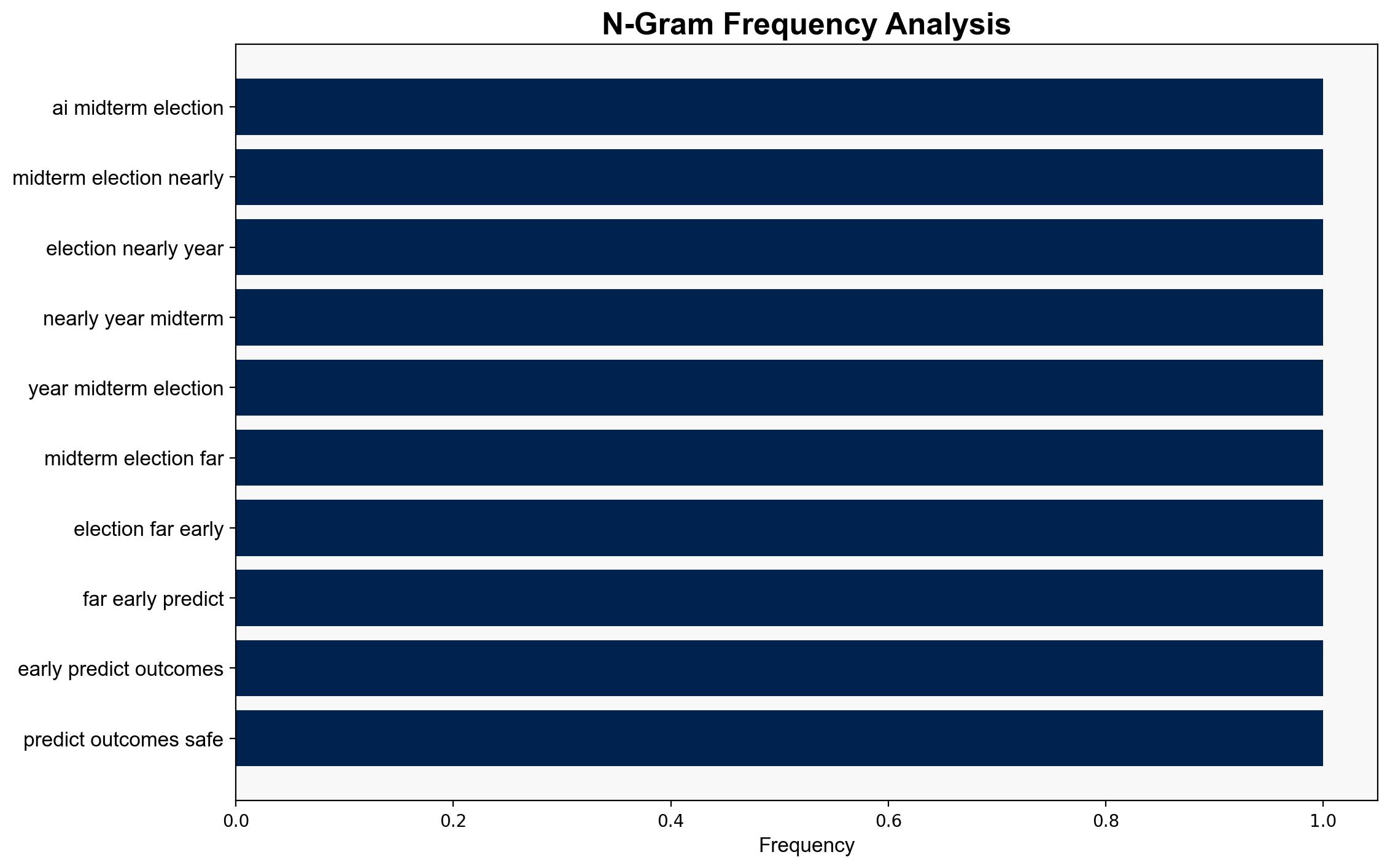AI in the 2026 Midterm Elections – Schneier.com
Published on: 2025-10-06
Intelligence Report: AI in the 2026 Midterm Elections – Schneier.com
1. BLUF (Bottom Line Up Front)
The strategic judgment is that AI will significantly influence the 2026 midterm elections, with a moderate confidence level. The most supported hypothesis is that AI will be leveraged more effectively by Republicans, potentially widening the political gap. Recommended action includes monitoring AI developments and preparing regulatory frameworks to ensure fair election processes.
2. Competing Hypotheses
1. **Hypothesis A**: Republicans will effectively exploit AI technologies to gain a strategic advantage in the 2026 midterm elections, leveraging AI for personalized messaging and campaign strategies.
2. **Hypothesis B**: Both parties will adopt AI technologies at similar levels, resulting in a balanced impact on the election outcomes, with no significant advantage to either side.
Using Analysis of Competing Hypotheses (ACH), Hypothesis A is better supported due to the proactive stance of Republicans and the Trump administration’s alignment with tech industry leaders like Elon Musk. Democrats appear more reactive, focusing on regulation and consumer protection.
3. Key Assumptions and Red Flags
– **Assumptions**: It is assumed that AI will be a pivotal factor in election strategies and that Republicans will maintain their current trajectory in AI adoption.
– **Red Flags**: The assumption that Democrats will not catch up in AI adoption could be flawed if they shift focus or receive significant tech industry support.
– **Blind Spots**: Potential underestimation of AI’s impact on voter behavior and the regulatory environment’s ability to keep pace with technological advancements.
4. Implications and Strategic Risks
– **Patterns**: Increasing political polarization driven by AI-enhanced messaging.
– **Cascading Threats**: Potential for AI to exacerbate misinformation and deepen societal divides.
– **Escalation Scenarios**: Unchecked AI use could lead to significant election integrity issues, undermining public trust in democratic processes.
– **Economic and Cyber Dimensions**: AI-driven campaigns may influence economic policies and cybersecurity measures, with tech companies playing a pivotal role.
5. Recommendations and Outlook
- Develop bipartisan regulatory frameworks to oversee AI use in political campaigns.
- Encourage transparency in AI-driven political messaging to mitigate misinformation risks.
- Scenario Projections:
- **Best Case**: Balanced AI adoption leads to fair competition and enhanced voter engagement.
- **Worst Case**: AI manipulation results in significant election disputes and loss of public trust.
- **Most Likely**: Republicans gain a slight edge due to early adoption and strategic use of AI technologies.
6. Key Individuals and Entities
– Donald Trump
– Elon Musk
– Ro Khanna
– Andrew Yang
– Elizabeth Warren
– Mark Seward
7. Thematic Tags
national security threats, cybersecurity, political polarization, AI regulation, election integrity




